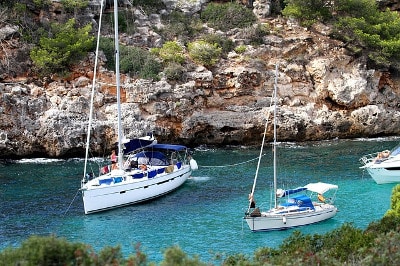1. Establish Residency
Malta runs a number of residency programmes for expats. If your application is successful you will be given an eResidency card which becomes your formal means of identification in the country.
Certain residency schemes offer low income tax rates for non-Maltese nationals and, if you are working in Malta, your type of employment will determine your tax rate. For instance, workers in the financial services industry may qualify for a flat rate of 15% income tax on Maltese earnings.
2. Structure Your Finances to Reduce Tax Liability
Tax obligations can be a worry for many expats, especially if they think they are paying too much tax, paying it in the wrong jurisdiction, or paying twice. When looking for financial advice in Malta, an experienced international financial adviser can offer guidance on how to structure your wealth to help bring down your tax payments to the lowest possible level;
For example, an adult with income of £44,000 in 2017 – made up of UK state pension £8,000, private pension £16,000 and 4% investment income of £20,000 (portfolio value £500,000) – would have had a total tax bill of £700.
3. Plan your Pension
If you are working towards your retirement, Blacktower’s international financial advisers can help you formulate a pension savings plan. We are able to offer you the benefit of global products to suit your personal situation. As always, the overarching advice is to start saving as soon as possible and not to rely on your UK state pension alone.
If you are retiring to Malta, the country’s double tax treaty with the UK means that, generally, your private pension and annuity income will be taxable in Malta while your state pension will be taxable in the UK. So, you will be able to benefit from personal allowances in both countries on the relevant pension income.
4. Inheritance Planning
In Malta, no inheritance tax or gift tax is applicable, but when you transfer Maltese property 5% Stamp Duty will be charged. If you are UK domiciled you will still need to pay UK inheritance tax on worldwide assets.
Under Brussels IV, the EU regulation on succession, you can opt to have UK succession law apply to your estate on your death. If you do not formally declare this wish in your Will (or with a similar document) and you are “habitually resident” in Malta when you die, Maltese succession law will apply to your estate.
If you are planning to live in Malta, it will be important to have a succession planning check-up so that you can ensure your estate will be divided and disbursed as you wish, while also seeking to mitigate the tax obligations.
5. Get Investing
It might not be possible to make your fortune through your employment income alone, so it will be important to make the most of your wealth and assets as an expat in Malta. Portfolio planning will be crucial to making the most of your money, but if you have not got the time or inclination to research global markets, diversify your asset classes, or trade forex, then talking to an experienced international financial adviser could be one of the best moves you make.
At Blacktower, we will carry out a full review of your financial circumstances, create a risk profile for you and develop an investment planning report tailored to your needs.
Feel at Home as an Expat in Malta with Blacktower by your Side
In Malta, cars travel on the left-hand side of the road, the Mediterranean cuisine is abundant with pasta dishes,and you will find plenty of English language books in the libraries (great for reading on the sunny beaches).
All Blacktowwer advisers speak English and many are expats themselves, so they know exactly what you are experiencing. We can offer real-life experience and local knowledge to help you make the most of your money and offer you the financial advice in Malta most suited to your individual needs.
This communication is for informational purposes only and is not intended to constitute, and should not be construed as, investment advice, investment recommendations or investment research. You should seek advice from a professional adviser before embarking on any financial planning activity. Whilst every effort has been made to ensure the information contained in this communication is correct, we are not responsible for any errors or omissions.

